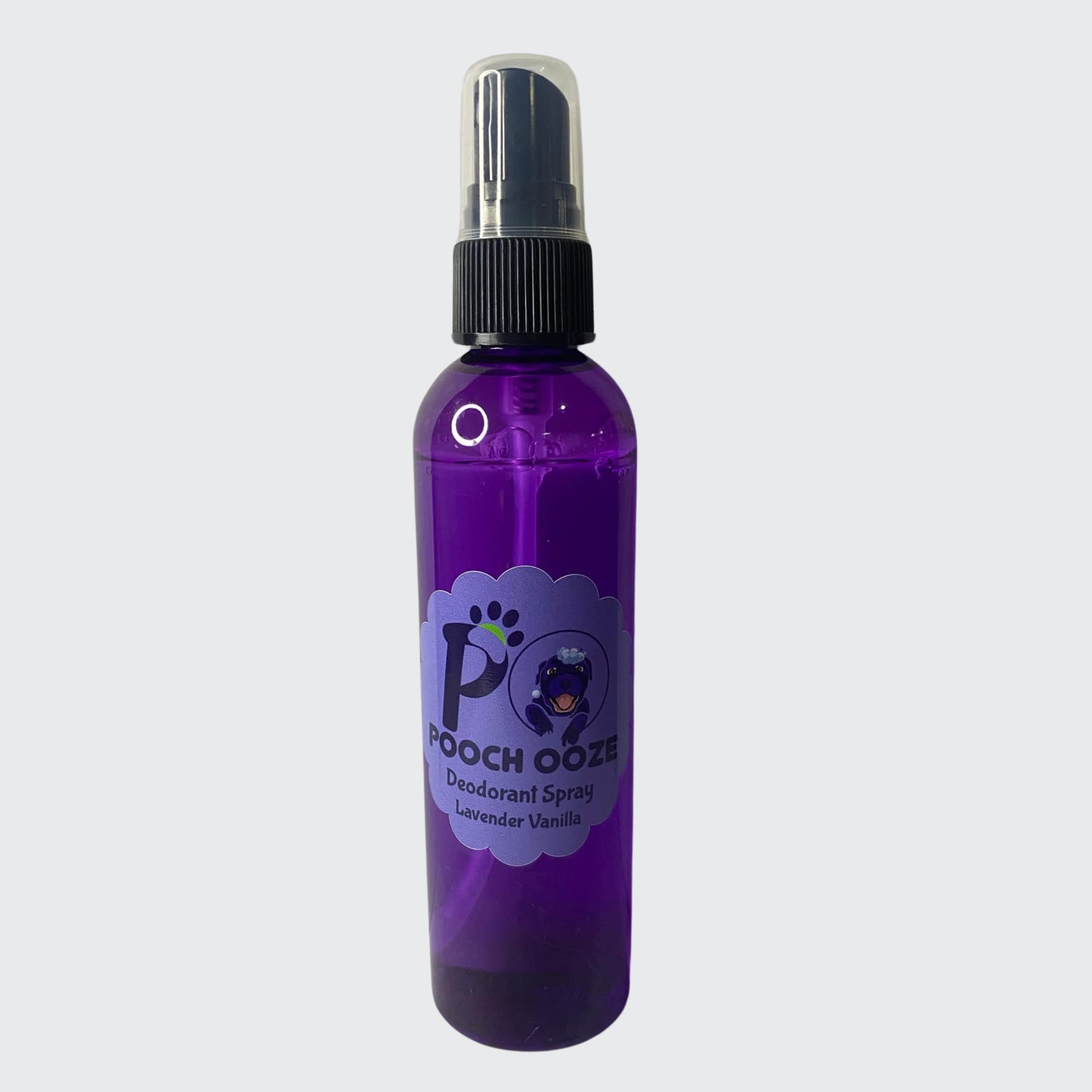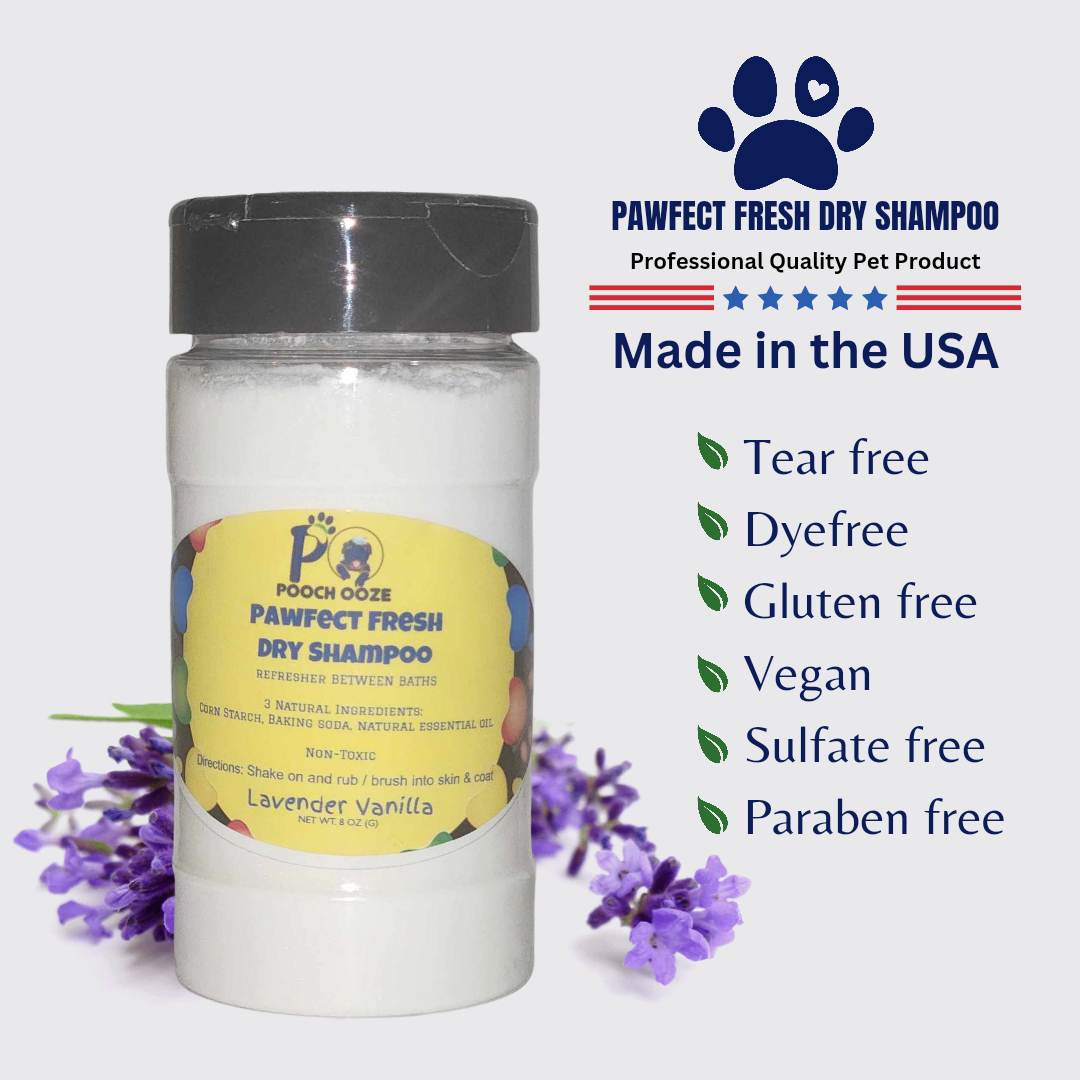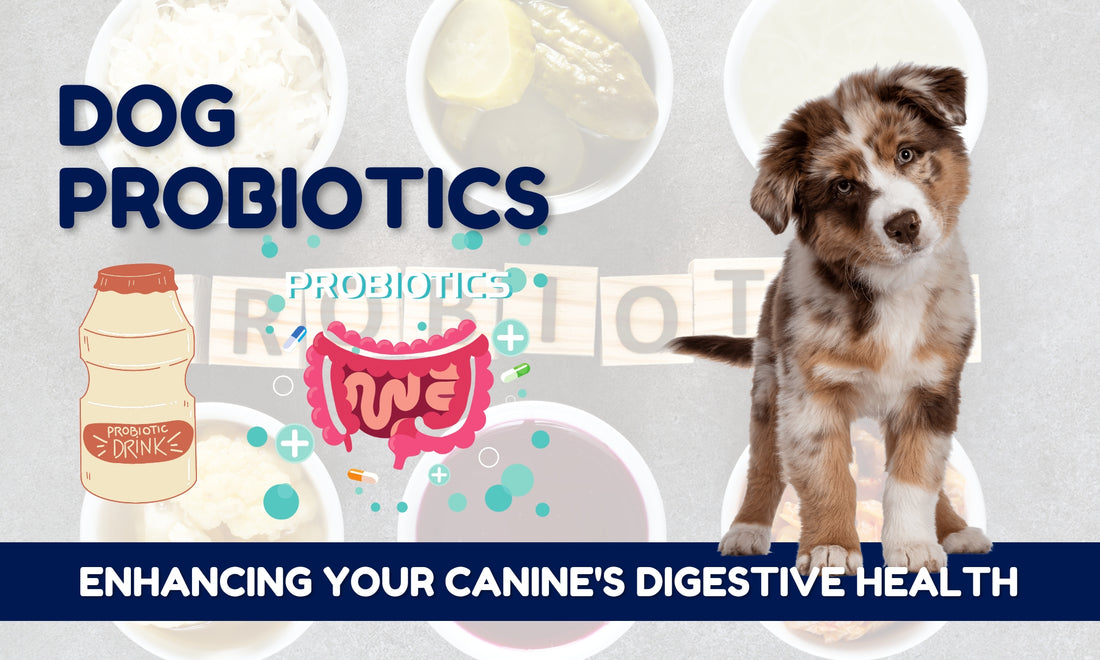Probiotics are essentially beneficial microorganisms, including bacteria and yeasts, that reside in the gut. They play a crucial role in aiding digestion, combating potential pathogens, synthesizing nutrients and vitamins, and strengthening the immune system. Derived from the Latin word "pro," meaning "for," and the Greek word "bio," meaning "life," probiotics have become a popular nutritional tool for maintaining the well-being of dogs.
Occasionally, the population of beneficial microbes can become compromised or depleted, leading to various health issues and digestive disturbances in dogs. If your furry companion experiences frequent bouts of diarrhea, an overall decline in health, or seems more prone to illness without apparent cause, your veterinarian may recommend employing one of the following methods to restore and enhance beneficial bacteria:
Prebiotics: These are specialized nutrients designed to nourish and support the growth of existing beneficial bacteria residing in the colon. By providing a favorable environment for these microbes to thrive, prebiotics aid in restoring a healthy balance in the gut.
Probiotics (direct-fed microbial): Referred to as direct-fed microbial by the Association of American Feed Control Officials (AAFCO), probiotics are available in various forms to suit different preferences and needs. Some common options include:
Yogurt or Kefir with Live Cultures: Not all yogurt cultures are probiotics, so it's important to choose carefully. Opt for unsweetened, plain yogurt, and carefully read labels to avoid any artificial sweeteners. These products contain live cultures that can help replenish beneficial bacteria in your dog's gut.
Powders, Capsules, and Chews: Several manufacturers offer probiotics in convenient powdered or capsule forms. These products typically contain strains of bacteria that are naturally found in a dog's gastrointestinal system.
Probiotic-Enriched Dog Foods: Some commercial dog foods are formulated with added probiotics. These specially designed formulations aim to provide a balanced diet while also supporting gut health.
Common strains of bacteria found in probiotic products for dogs include:
• Lactobacillus acidophilus
• Enterococcus faecium
• Bifidobacterium lactis
• Lactobacillus casei
• Bifidobacterium breve
By incorporating probiotics into your dog's diet, you can help maintain a healthy balance of gut microflora, support optimal digestion, and bolster their overall well-being. However, it's crucial to consult with your veterinarian before introducing any new supplements or dietary changes to ensure they align with your dog's specific health requirements.
Remember that probiotics are just one aspect of promoting a healthy gut. Proper nutrition, regular exercise, and routine veterinary care all contribute to your dog's overall wellness. Taking a holistic approach to your best friend's health will help them lead a happy and vibrant life by your side.
As a pet owner, you want to ensure the best possible health for your furry friend. One aspect of your dog's well-being that often gets overlooked is their digestive health. Just like humans, dogs can experience digestive issues, which can lead to discomfort and a decrease in overall quality of life. Fortunately, there's a natural and effective solution to support your dog's digestive system: dog probiotics.
What Are Dog Probiotics?
Dog probiotics are beneficial bacteria that are similar to the ones naturally found in your dog's gut. These live microorganisms help maintain a healthy balance of bacteria in the digestive tract, promoting optimal digestion and nutrient absorption. Probiotics for dogs are available in various forms, including powders, capsules, and treats.
The Benefits of Dog Probiotics
Improved Digestion: Dog probiotics can enhance the breakdown and absorption of nutrients, improving your dog's overall digestion.
Balanced Gut Microbiome: Probiotics help maintain a harmonious balance of bacteria in the gut, supporting a healthy gastrointestinal system.
Enhanced Immune Function: A significant portion of the immune system resides in the gut. Probiotics stimulate the immune response, helping your dog stay healthier.
Understanding the Gut Microbiome
The gut microbiome refers to the community of microorganisms, including bacteria, fungi, and viruses, that reside in your dog's digestive tract. A balanced gut microbiome is crucial for proper digestion, nutrient absorption, and overall health. Disruptions in the gut microbiome can lead to digestive issues, allergies, and even immune system dysfunctions.
How Probiotics Support Digestive Health
Probiotics work by introducing beneficial bacteria into the gut, which helps restore and maintain a healthy balance. They inhibit the growth of harmful bacteria, reduce inflammation, and support the integrity of the intestinal lining. This can alleviate common digestive problems such as diarrhea, constipation, and gas.
Probiotics for Dogs with Digestive Issues
If your dog experiences digestive issues like diarrhea, vomiting, or excessive gas, probiotics can offer relief. They can help regulate bowel movements, reduce inflammation, and restore the balance of gut bacteria. However, it's essential to consult your veterinarian for proper diagnosis and guidance before starting your dog on probiotics.
Choosing the Right Probiotic for Your Dog
When selecting a probiotic for your dog, consider the following factors:
Strain Diversity: Look for a probiotic that contains a variety of bacterial strains to ensure maximum benefits.
Quality and Viability: Choose a reputable brand that guarantees the viability of their probiotic strains through proper storage and manufacturing practices.
Suitability for Dogs: Ensure that the probiotic is specifically formulated for dogs, as their digestive systems have unique requirements.
Incorporating Probiotics into Your Dog's Diet
To introduce probiotics into your dog's diet, follow these steps:
Consult Your Vet: Seek guidance from your veterinarian to determine the appropriate dosage and method of administration.
Choose the Right Product: Select a high-quality probiotic product suitable for your dog's size and breed.
Gradual Introduction: Start with a small amount of probiotic and gradually increase the dosage over a few weeks to allow your dog's system to adjust.
Probiotics and Immune System Health
A healthy gut microbiome is closely linked to a robust immune system. Probiotics support the immune response by enhancing the production of antibodies and promoting a balanced immune system. By incorporating probiotics into your dog's routine, you can help strengthen their immune system, leading to a healthier and happier pup.
Probiotics for Dogs with Allergies
Allergies in dogs can manifest as skin irritations, itching, and gastrointestinal issues. Probiotics have shown promise in managing allergies by modulating the immune system and reducing inflammation. While probiotics may not completely cure allergies, they can provide relief and support overall allergy management in dogs.
Potential Side Effects of Dog Probiotics
While probiotics are generally safe for dogs, some potential side effects may occur, including:
Digestive Upset: In some cases, dogs may experience mild digestive upset, such as temporary gas or loose stools. These symptoms usually subside as your dog's system adjusts.
Allergic Reactions: In rare cases, dogs may have an allergic reaction to specific strains of bacteria present in the probiotic. If you notice any severe allergic symptoms, discontinue use and consult your vet immediately.
Conclusion
Dog probiotics offer a natural and effective way to support your canine companion's digestive health. By maintaining a balanced gut microbiome, probiotics promote optimal digestion, enhance immune function, and alleviate digestive issues. When choosing a probiotic, consider strain diversity, quality, and suitability for dogs. Remember to consult your veterinarian for guidance on dosage and administration. With the right probiotic and proper care, you can help your dog lead a healthier and happier life.
FAQs (Frequently Asked Questions)
Can I give my dog human probiotics?
It's best to use probiotics specifically formulated for dogs, as their digestive systems have different requirements than humans.
How long does it take for probiotics to work in dogs?
The timeframe for probiotics to show results can vary depending on the dog and the specific condition being addressed. It may take a few weeks to see noticeable improvements.
Can probiotics help with my dog's bad breath?
While probiotics primarily focus on digestive health, they can indirectly improve bad breath by supporting oral health and reducing digestive issues that contribute to foul odors.
Are probiotics suitable for puppies?
Probiotics can be beneficial for puppies, especially during the weaning process or when transitioning to a new diet. However, it's crucial to consult your vet for appropriate dosage and timing.
Do I need a prescription for dog probiotics?
Most probiotics for dogs are available over the counter and don't require a prescription. However, it's always a good idea to consult your veterinarian for personalized recommendations.



